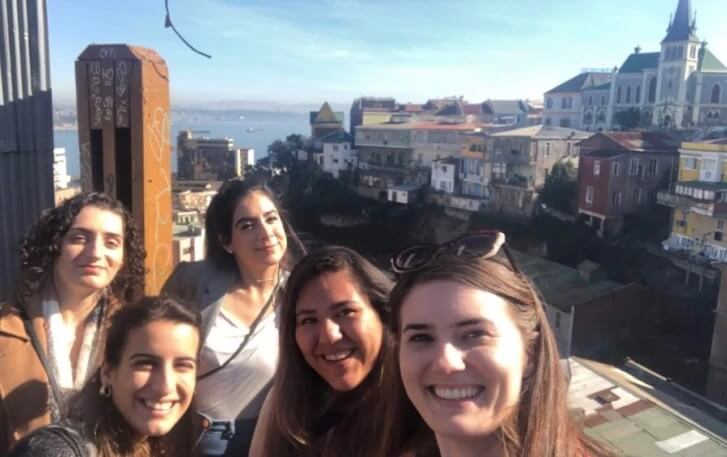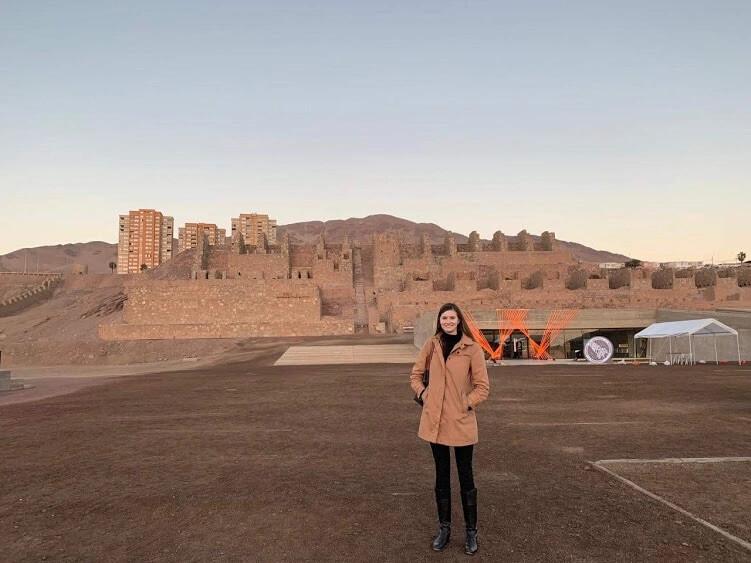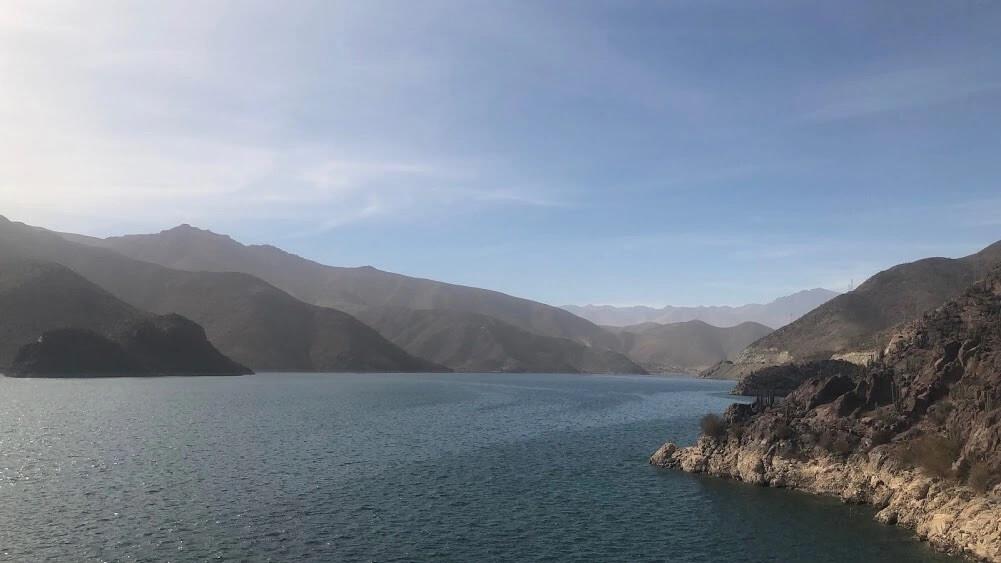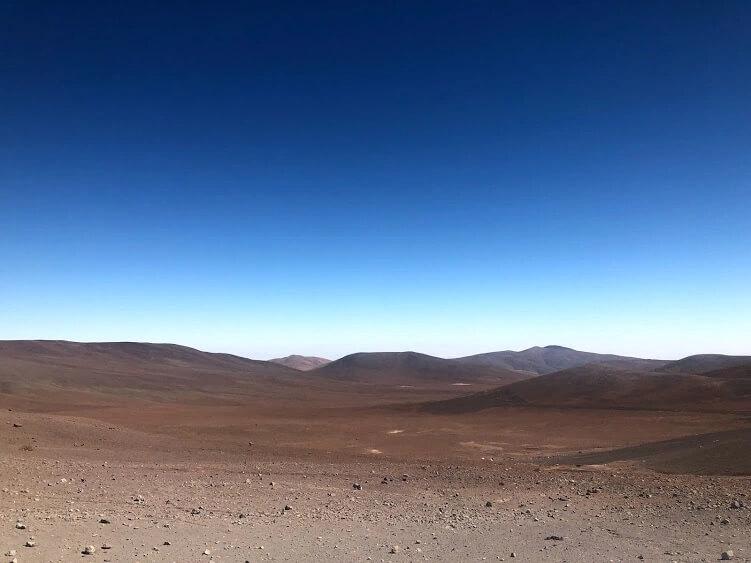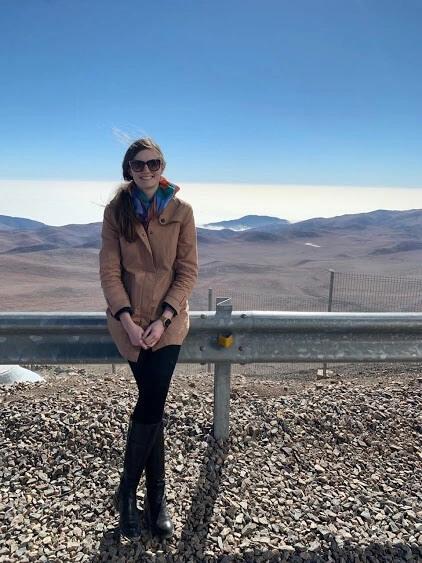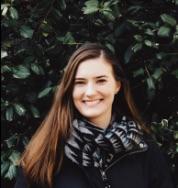Hello again from Santiago, where it is almost springtime and my time in Chile is sadly coming to a close! I’d like to echo my colleagues in thanking you for keeping up with us these past few months; I know I have enjoyed getting to read about everyone’s work and adventures.
My work since I last wrote has been a lot of support planning future meetings, namely the capacity-building workshop on global citizenship education (GCED) and rule of law I wrote about in my last blog, and a series of workshops on GCED we’ll be holding in the fall in a few Caribbean countries. There’s a lot going on for GCED through the end of the year with many different meetings and convenings to help build a regionally-contextualized vision of GCED, and target 4.7 as a whole, going into 2020.
One of my favorite things I’ve gotten to do since I’ve been in Chile was attend, with a delegation of UNESCO staff, a book release event at the Universidad de Chile on a joint initiative between the Universidad de Chile’s center for the study of teaching, Saberes Docentes, and the Ministry of Education of El Salvador on citizenship education in Chile and El Salvador. The project was twofold, involving a teacher exchange for professional development where Salvadoran teachers spent time in Chilean classrooms, as well as a study of the exchange of experiences and pedagogical methodologies for citizenship education between the two countries.
Chile and El Salvador see many similarities between their countries — they’re both relatively new democracies, emerging from military regimes, and expressed that they’re still learning what it means exactly to be citizens in their new democratic contexts. Educators in both countries are still working through what should be the role of memory in education, particularly when it comes to recent and divisive history. It was a fascinating conversation to be able to witness. A favorite quote of the evening, that I think is relevant beyond Chile and El Salvador’s cases, came from Dr. Carlos Ruiz, the Dean of the Department of Philosophy and Humanities at the Universidad de Chile; he said, “la democracia no es herencia, cada generación la tiene que construir de nuevo” — democracy isn’t inherited, each generation has to build it anew.
The big news at OREALC/UNESCO Santiago this past week has been the convening of two major meetings: the Regional Steering Committee and the Regional Education Forum. The Regional Steering Committee is a group of representatives from Ministries of Education in Latin America and the Caribbean and other high-level organizations, such as CARICOM (the Caribbean Community), who help keep the region on track to complete the goals of UNESCO’s Education 2030 Agenda. The Regional Education Forum gathers experts in the region, and this year’s meeting had a focus of “Education Beyond Borders,” the right to education for young people in situations of mobility. It’s been all hands on deck with both efforts so, though I’m not directly involved, it was a busy past few days translating presentations and providing other meeting support.
Over a recent holiday weekend, I was able to take advantage of some connections I have in the north of Chile to visit the Atacama desert and the Coquimbo region. Chile has stunning natural sights and absolutely every type of landscape we have on Earth (and beyond — being at 2600m altitude above the clouds at the Paranal Observatory was like being on Mars!), so I was glad to make it out of Santiago for a bit to get to know more of the country.
In closing, I have to agree with Dave that this experience has exceeded the wildly high expectations I had of it. Getting to spend three months working for UNESCO has changed my outlook on so many things, including future work I would be interested in pursuing, and I am so grateful for the experience. This has been an unforgettable few months and I’ll be heading home with some incredibly interesting professional experiences, new friends and mentors, and some classic Chilean experiences under my belt (namely, Chilean slang and a temblor or two).
Thank you again for following along, and a huge thank you to everyone who works to make the GW UNESCO Fellows program possible.
Maggie Montgomery is a Master’s candidate in International Education with a focus on global citizenship education, citizenship education, and international student exchange.


